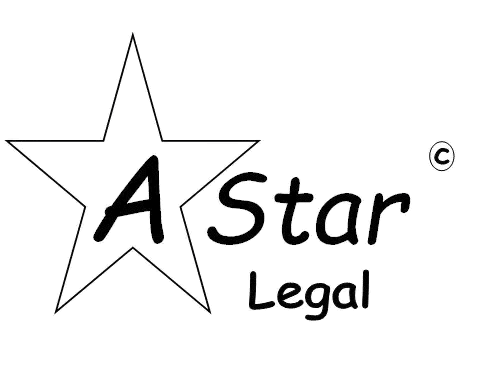Last updated on September 10th, 2025 at 06:17 pm
Introduction
Identify The Statement Which Are Correct About Trademark, The supposedly innocuous symbols, slogans, and designs that flaunt goods and services are times without number misunderstood for misconceptions about trademarks. Much more than ornament, these are robust weapons to protect brand identity, engender trust with consumers, and ensure fair play in competition. There is a need to separate fact from fiction so that one may successfully navigate the world of trademarks. It will be correct to consider the statements that aptly explain their importance and legal consequences by delving deeper into the niceties of trademarks.
Table of Contents
ToggleThe Meaning of A Trademark
Before going deep into trademark truths, we need to outline the basics. A trademark is any term, phrase, symbol, design, or any combination of aforementioned components identifying and distinguishing goods or services as coming from one source over those of another. It’s a badge of origin that quickly triggers a customer to identify and associate a certain product or service with a company.
Truthful Statements on Trademarks
Trademarks protect brand identity
Correct Trademarks give the owners an exclusive right to use the mark for the goods or services offered by them. This exclusivity safeguards against consumer confusion and hence doesn’t allow competitors to make marks similar or confusingly identical to maintain exclusivity in a brand. While a trademark not registered, indicated by the ™ symbol, may allow for some degree of common-law protection, registration under the ® mark establishes much more substantial legal rights.
The awarded trademarks involve public acknowledgment of the ownership with a right to sue in federal court for infringement, and to get damages, and even to bar importation of infringing goods.
Trademarks are renewable
Yes, indeed. Unlike patents and copyrights, which have a limited lifetime, trademarks can be renew every ten years—in most jurisdictions—so long as the marks are still in use and meet other legal requirements. By this perpetual renewal, brands manage to hold on to protection and exclusivity indefinitely, thus safeguarding these very valuable assets.
Trademarks are regard as freely transferable assets; they can sold, purchased, or licensed to third parties. One is free to make strategic business decisions under this flexibility—for instance, licensing a trademark for entry into new markets or selling the same under a wider corporate transaction. Marks that may not be register include generic terms, such as book for a bookshop, and descriptive marks, such as delicious for a food product. Misleading marks are those that state that something is in a product when it really is not, such as labeling something as organic when it is really not organic. A mark must actually be distinctive to be register.
Trademarks give combat to counterfeiting
A registered trademark is an immensely powerful weapon in the fight against goods infringement. They enable a brand owner to work hand-in-hand with customs officials to detect and therefore seize counterfeit products, in turn protecting the consumers along with the reputation of the brand that has built over time.
Value of trademarks
A well-settled trademark can be the most valuable asset of a firm or company. It is achieve with years of brand development, marketing efforts, and consumer trust. The Coca-Cola, Nike, and Apple companies derive tremendous market value because of classic trademarks.
Search trademarks can be applied internationally
Normally, the registration of trademarks is a territorial affair. That’s protection within a country or region, save for international agreements like that of the Madrid Protocol, which facilitates trademark registration and protection in a number of countries. This kind of provision, therefore, makes it very easy to operate businesses across borders.
Trademark Myths:
Trademarks Are Automatic: False If you use a mark, trademark rights do not automatically make an appearance. Even though in some jurisdictions, limit common law protection is given to the application of unregister marks, administrative registration is a prerequisite for claiming full sets of legal rights and remedies. Trademarks are perpetual and do not require renewal.
Trademarks need to be renew after periodic intervals, usually every 10 years, with the effect that on such renewal the protection will continue. If not renew, trademark rights may get lost. Trademarks prevent the use of similar words. Trademark protection extends only to explicitly recognized goods or services with the mark, not to the word or phrase generally in all markets. Infringement requires intent. Proof of intent or even willful infringement need not shown, although they may result in enhanced damages. The likelihood of consumer confusion is often relied upon to demonstrate infringement.
Read Also: Best Trademark Attorney in India
Conclusion
An understanding of trademark law is quite indispensable if a brand’s identity ever needs an extra kick to survive the nuances of market complexity. Be it a new business or an established one, an investment in trademark protection is a strategic move that can have long-term advantages and secure your brand’s future.
A Star Legal Associates offers you one-stop professional advice and comprehensive solutions about all trademark-related matters. It is a law firm specializing in intellectual property laws, and it gives customized solutions related to trademark registration, enforcement, licensing, and dispute resolution. They have in-depth knowledge of the intricacies of the laws governing trademarks and will help you navigate through these ultra-complex issues to ensure maximum protection for your brand.
For more information stay updated with:- Astarlegal.com







